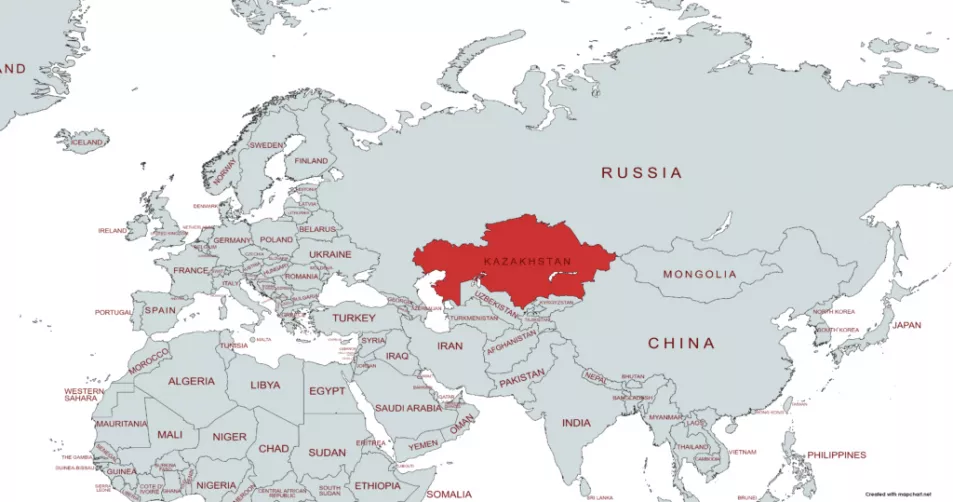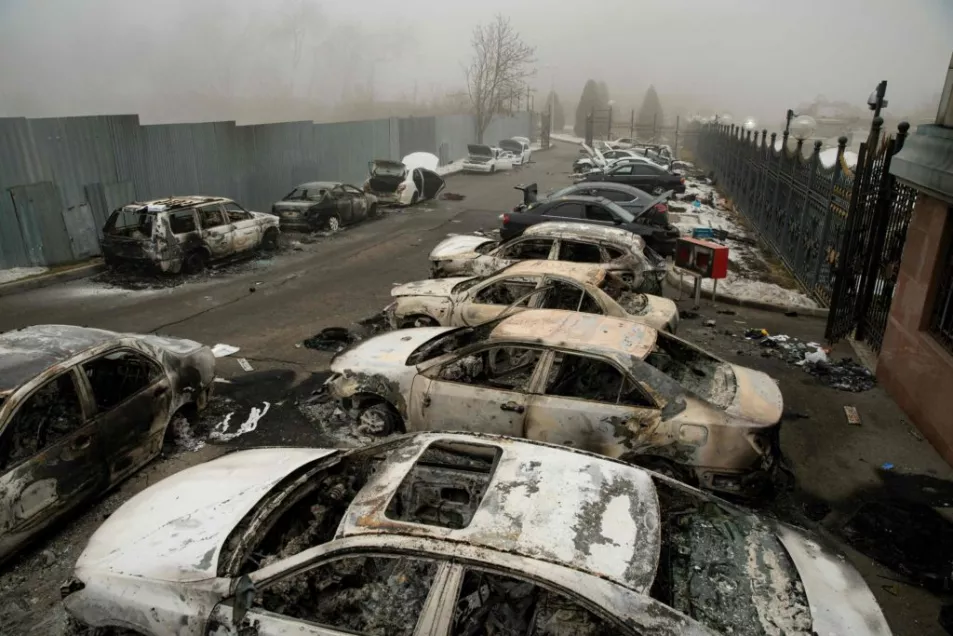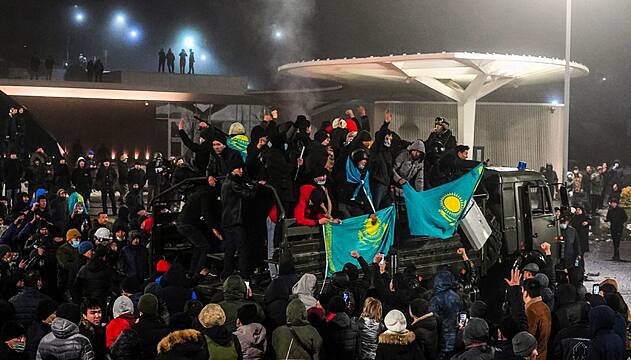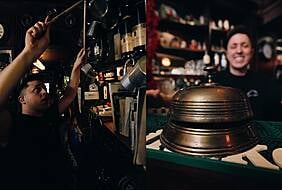Dozens of people have been killed in Kazakhstan amid violent clashes between protesters and law enforcement.
Tensions had been steadily rising following fuel price increases, prompting protests in the county's capital city, Almaty.
As the situation escalated, violence has broken out in recent days, leading the Kazakh president Kassym-Jomart Tokayev to request support from an alliance of fellow former-Soviet countries in an attempt to quell tensions.
Here's everything you need to know about Kazakhstan and what has led to the recent turmoil...
Where is Kazakhstan and why is it important?
Kazakhstan is a county in Central Asia, the largest landlocked country in the world, which shares borders with Russia (north), China (southeast) and Uzbekistan (south).
A former member of the Soviet Union, Kazakhstan declared independence in 1991, since which time the Nur Otan party has held power.
According to the World Bank, in 2020 the country had a population of approximately 18.8 million, relatively low considering its standing as the ninth-largest county in the world based on land mass.
Kazakhstan is the top global producer of uranium and the world's ninth-biggest oil exporter, producing some 85.7 million tonnes in 2021. It is also the world's 10th largest producer of coal and the second-largest miner of bitcoin.

Fuel prices
The uprising began as protests in oil-rich western regions against the removal of state price caps on January 1st for butane and propane, often referred to as 'road fuels for the poor' due to their low cost.
The reform, aimed at easing oil shortages, quickly backfired as prices more than doubled.
The protests spread, tapping into a wider sense of discontent over endemic state corruption, income inequality and economic hardships that have all been compounded by the coronavirus pandemic.
Although the richest of the Central Asian republics by per capita income, half of the population in Kazakhstan live in rural, often isolated communities with poor access to public services.
While the country's vast natural resources have made a small elite incredibly wealthy, many ordinary Kazakhs feel left behind, with about a million people in the country are estimated to live below the poverty line.

Protests
As protests became larger and more widespread, they soon turned violent.
A police spokesperson said attempts were made to storm government buildings on Wednesday night.
Reports say dozens of protesters have been killed in the clashes, while at least 13 members of the security forces have also died, two of whom were found beheaded.
On Thursday afternoon, the presidential residence and the mayor's office in Almaty were on fire, while protesters had seized control of the city's airport.
Production at some of the country's key oilfield's has also been impacted, with some contractors disrupting train lines at the top field, Tengiz, in support of the protesters.
The unrest has lead the government to resign and a state of emergency has been declared for the whole country.

Assistance
As the violence escalated, Kazakh president Kassym-Jomart Tokayev asked the Collective Security Treaty Organisation (CSTO) for assistance to subdue the unrest. The CSTO is an alliance of six former-Soviet states, Kazakhstan, Armenia, Belarus, Kyrgzstan, Tajikistan and Russia.
Following the request, the alliance's council agreed to send an unspecified number of peacekeepers to Kazakhstan to help local security forces, with Russian paratroopers arriving in the country on Thursday.
Turkey has also voiced its support for Kazakh authorities, but meanwhile, top EU diplomat Josep Borrell has said Russia's military intervention has brought back "memories of situations to be avoided".
The European Commission vice-president expressed "great concern" about the situation, stating: "Rights and security of civilians must be guaranteed". He added the EU is "ready to support in addressing this crisis".







